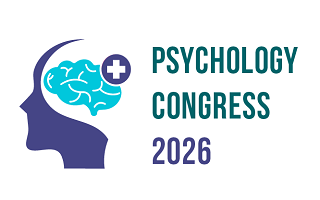3rd International Congress on
Psychology & Behavioral Sciences
March 26-27, 2026 | Osaka, Japan

Address: 5 Chome-3-68 Nakanoshima, Kita Ward, Osaka, 530-0005, Japan.
Psychology Congress 2026

University of Puerto Rico, Rio Piedras Campus, Puerto Rico
Abstract:
This pilot study examines the perception of assistive and emerging technologies among young adults diagnosed with Autism Spectrum Disorder (ASD) and/or Attention Deficit Hyperactivity Disorder (ADHD) in Puerto Rico. The primary objective is to describe how this population perceives the availability and usefulness of technological supports in daily life, while identifying unmet needs and opportunities for culturally relevant innovation. A non-probabilistic convenience sampling method will be used to recruit participants from the University of Puerto Rico, Río Piedras Campus. The study follows a mixed and exploratory methodology, incorporating semi-structured interviews to explore participants’ experiences and a descriptive analysis of the sample to contextualize the findings. Existing literature highlights both the benefits and challenges of technology use among neurodivergent adults. Zhou et al. (2025) and Adamou et al. (2021) emphasize the need for personalization and accessibility in assistive systems for adults with ASD and ADHD. Similarly, Hassrick et al. (2021) suggest that technological interaction environments can either support or replace social barriers. Shen and Yu (2024) point out the potential of artificial intelligence and telemedicine in diagnosis and therapeutic support, though often within Eurocentric and Anglophone contexts. Newbutt et al. (2021) note the limited inclusion of autistic individuals in technology design and testing processes. This study seeks to provide preliminary evidence on the perceptions of neurodivergent young adults in Puerto Rico regarding assistive technologies, establishing a foundation for future research and the development of inclusive, culturally grounded innovations.
Biography:
Sebastian Burgos Fernandez is a graduate student in Neurocognition and Human Development at the University of Puerto Rico, Río Piedras campus. His research explores the intersection of emerging technologies and interpersonal dynamics, he was among the first scholars to examine phubbing within the Puerto Rican college student population. He also investigates the integration of artificial intelligence into psychological research. Currently, he serves as a teaching assistant for the Research Methods course and is a member of the Emerging Technologies Research Laboratory. In parallel with his research and teaching responsibilities, Sebastián is pursuing a master’s degree in Neurocognition and Human Development.
